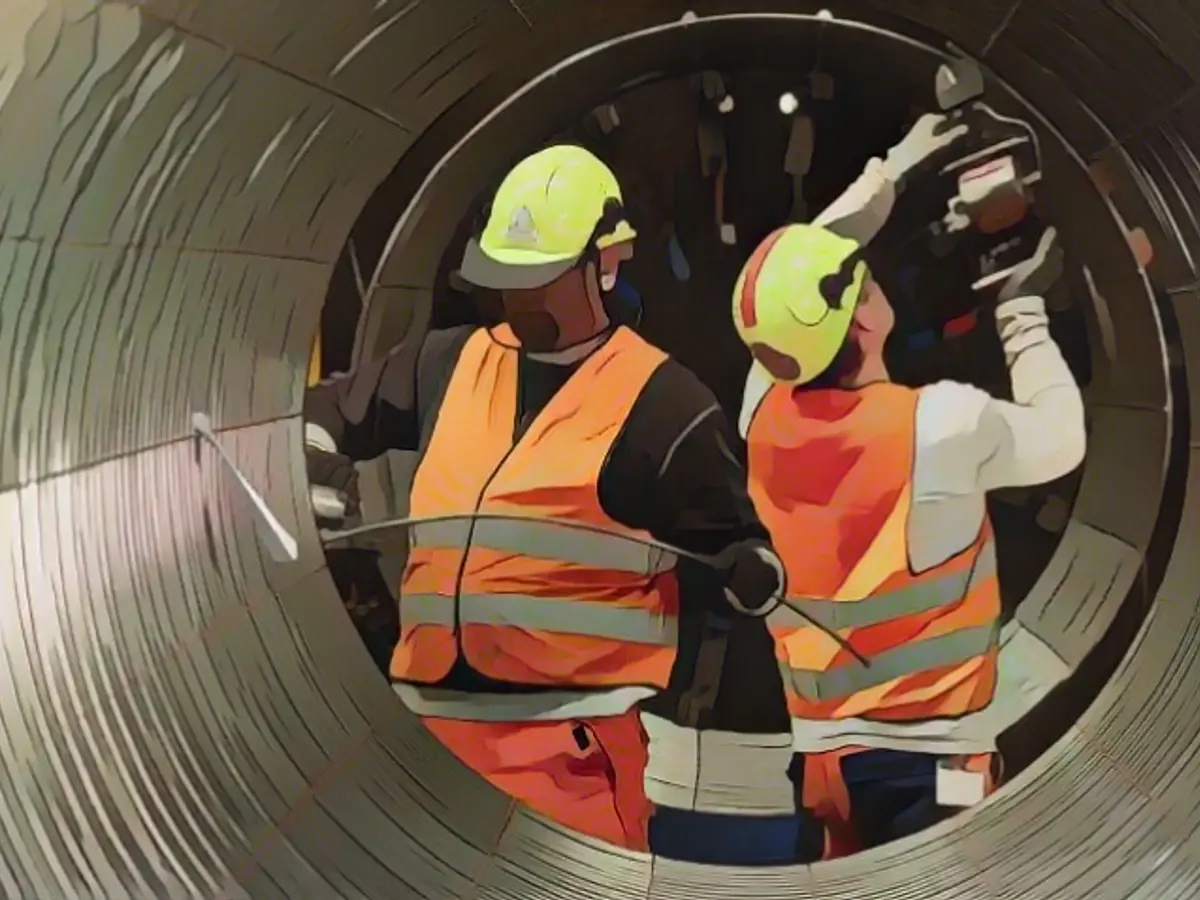Navigating Europe's Energy Dilemma: Breaking Free from Russian Gas
Europe finds itself in the midst of an energy conundrum, with Russian President Vladimir Putin's actions stirring up a swirl of uncertainties. Although the threat of an all-out war seems to be subsiding, Europe's energy sector remains on edge, grappling with the specter of disruptions and soaring gas prices.
The core issue at hand is Europe's heavy dependence on Russian natural gas. This plentiful yet precarious resource accounts for a substantial chunk of the continent's energy needs, giving rise to significant geopolitical and environmental concerns.
Facing the Challenge of Alternative Energy
The urgency to phase out European reliance on Russian gas cannot be overstated. The past spikes in global gas prices, fueled largely by the 2014 conflict between Russia and Ukraine, have left millions of Europeans grappling with energy poverty. Worse, the continued use of fossil fuels serves to exacerbate climate change.
Cultivating Alternative Gas Sources
The search for viable alternatives to Russian gas involves forging new partnerships and reassessing established connections. This might mean importing Liquefied Natural Gas (LNG) from the United States and other countries, or establishing closer ties with other gas suppliers. Furthermore, investing in renewable energy sources—such as solar and wind power—it is an important step towards achieving energy independence from Russian gas.
Energizing Energy Efficiency: The Key to Sustainable Gas Consumption
Progress in energy efficiency can help minimize consumption and decrease Europe's reliance on Russian gas. Implementing eco-friendly practices across industries and households, coupled with investment in energy-efficient technologies, can contribute to the development of a more resilient energy sector.
Upgrading Infrastructure and Revitalizing Grid Systems
Infrastructure renovations are instrumental in realizing Europe's goal of a cleaner, more secure energy future. New pipelines, hydrogen storage facilities, and pipeline systems that bypass Ukraine—all help bolster the continent's energy security.
Journeying towards Decentralized, Carbon-Neutral Industries
Parallel to renewable energy sources, transitioning towards low-carbon industries is imperative for it enables the liberation from the clutches of Russian gas. The transformation of aluminum and ammonia production processes towards green electricity and cutting-edge, near-zero-emission technologies, can play a pivotal role in Europe's energy revolution.
Maximizing the Impact of EU Policy Initiatives
Policy reforms at the European Union level are crucial in devising an exit strategy from Russian gas dependence. Initiatives like the Fit for 55 package, which boosts renewable energy, energy efficiency, and other integral measures, can accelerate the move towards a Russian gas-free Europe. Similarly, the proposed Carbon Border Adjustment Mechanism (CBAM) has the potential to incentivize green investments during the energy transition.
United in Action: A Stronger Response to Energy Security Challenges
Cohesion and joint effort among EU member states are fundamental in mounting a robust response to energy security challenges. A collaborative approach can bolster Europe's position in securing alternative gas sources and bolstering its energy independence.
Prioritizing Action: A Path Worth Walking
The need for Europe's energy independence is not a bold ambition, but rather a sensible course of action. With spirited initiatives and coordinated efforts, European leaders can pave the way for a long-lasting, Russian gas-free energy future.
EU Policy Initiatives Integration
- Europe is actively reducing its reliance on Russian gas and embracing a shift towards cleaner and more secure energy sources.
- Policies like the Fit for 55 package, the Carbon Border Adjustment Mechanism (CBAM), and REPowerEU have the potential to revolutionize Europe's energy landscape by boosting renewable energy, energy efficiency, and other critical measures.
Sources: Bruegel, European Commission, Eurelectric, and other relevant think tanks and reports.







